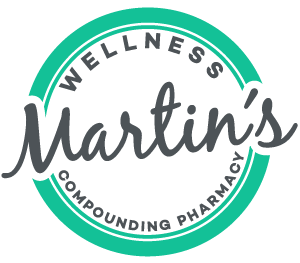Understanding and Managing Holiday Heart Syndrome: Symptoms and Prevention Tips

As holiday festivities ramp up, so does the risk of experiencing heart-related issues which can dampen your celebratory spirit. Holiday Heart Syndrome, a condition linked with irregular heartbeats after bouts of heavy drinking, affects many during joyous times.
This blog will guide you through recognizing symptoms and implementing prevention strategies to keep your heart merry and bright all season long. Read on for essential tips to protect your tick-tock during holidays!
Key Takeaways
- • Holiday Heart Syndrome is a heart problem that can happen when people drink too much alcohol, especially during holidays. It can make the heart beat in an odd way and cause atrial fibrillation.
- • To prevent Holiday Heart Syndrome, it's important to not drink too much alcohol or caffeine, eat healthy food instead of overeating, manage stress levels with activities like yoga, and stay active by walking or being outdoors.
- • If you have symptoms like feeling your heartbeat too fast or skipping beats, chest pain, fainting spells, or getting dizzy easily – get help right away. Doctors might treat this problem by giving medicines for the heart or advice on lifestyle changes.
- • Teamwork from doctors and other health helpers is key to taking care of someone with Holiday Heart Syndrome. They work together on eating plans and ways to stop drinking too much alcohol if needed.
- • Over many years since 1978, studies have shown that heavy drinking during holidays leads to bad heart rhythms. Now there are special tests doctors use to understand better if someone has this syndrome after partying hard.
Understanding Holiday Heart Syndrome


Holiday Heart Syndrome (HHS) emerges as a unique cardiac condition that often coincides with festive celebrations, marked by its own set of symptoms and triggers. Delving into this syndrome reveals the complexities of how our indulgences and joyful occasions can inadvertently lead to an increased burden on heart health.
Definition and Overview
Holiday Heart Syndrome is a sudden and usually unexpected heart rhythm problem. It often happens in people who drink a lot of alcohol during the holidays or on weekends. This syndrome can show up as atrial fibrillation, which is when the heart beats in an odd way.
Even if you don't drink too much, you might still get this condition.
This health issue can also happen to folks who use marijuana for fun. The more someone drinks over time, the higher their chance of having problems like cardiomyopathy (a sick heart muscle), arrhythmia (bad heartbeat), and liver disease that lasts a long time.
These are serious problems that can hurt your health a lot.
The History of Holiday Heart Syndrome
Back in 1978, a doctor named Philip Ettinger and his team came up with the term "Holiday Heart Syndrome". They used it to talk about heart problems that happen when people drink too much alcohol.
These issues can start suddenly and usually involve the heart beating in a messy way.
People noticed that during holidays, more folks were having trouble with their hearts. This was often after they drank lots of beer, wine, or other drinks with alcohol. Heavy drinking seemed to be a big reason why some individuals ended up feeling sick or even needing help from doctors for their hearts during festive times.
Causes of Holiday Heart Syndrome


The onset of Holiday Heart Syndrome is not simply due to one's festive spirit, but rather a culmination of factors that can stress the cardiovascular system. These triggers range from lifestyle choices to environmental pressures, often intensified during holiday festivities.
Alcohol Consumption
Drinking too much can hurt your heart. During the holidays, people may drink more than usual. This extra drinking is often linked to holiday heart syndrome and can lead to a problem with the heartbeat called atrial fibrillation.
Statistics show that alcohol triggers atrial fibrillation in up to 62% of these cases.
Heavy drinking over many years can cause serious heart problems and damage the liver. If you have holiday heart syndrome, this might make it worse and affect your health even more.
It's important to think about how much alcohol you drink, especially if you already have issues with your heart or liver.
Caffeine Intake
Caffeine can add to the trouble your heart may face during the holidays. Drinking too much coffee or energy drinks might make Holiday Heart Syndrome worse. It's best to keep an eye on how much caffeine you have, especially if it's cold outside, because this can put more stress on your heart.
Cutting back on caffeine is a smart move for keeping your heart in good shape and avoiding extra health problems.
You may love that morning cup of joe or soda in the afternoon, but having too many can be bad news for your ticker. If you find yourself feeling jumpy, have a racing heart rate or get short of breath after lots of caffeine, these could be signs you need to cut down.
And remember, smoking and high blood pressure don't mix well with lots of caffeine either. Making better choices like drinking less caffeine helps keep your heart happy and healthy.
Overeating and Weight Gain
Eating too much can lead to gaining weight. This extra weight puts a strain on your heart. Your heart has to work harder when you are heavier than when you are lighter. Holidays can make it easy for people to eat more than usual.
Lots of tasty treats and big meals might be around.
Gaining weight quickly can upset the balance in your body and hurt your heart's health. It might lead to Holiday Heart Syndrome, where your heartbeat gets irregular because of overeating or other things like drinking too much alcohol.
Taking care of what you eat is important for keeping your heart healthy, especially during holidays.
High-Stress Levels
The holidays can be a busy time with lots of pressure. This stress can hurt your heart health and may lead to Holiday Heart Syndrome (HHS). It's important to find ways to relax and take care of yourself during these times.
Keep an eye on your stress levels, as they play a big role in preventing HHS. Alongside not drinking too much alcohol, eating right, and not going overboard with caffeine, lowering your stress is key.
Activities like deep breathing, walking, or yoga can help manage anxiety and tension. Make time for hobbies you enjoy and spend moments with friends or family who make you feel good.
All these things might lower the risk of having heart issues from too much stress during the holiday season. Remember that taking care of how you feel inside is just as important as looking after your physical health to keep your heart happy.
Other Risk Factors for Heart Health Problems
Your heart can have trouble for other reasons too. Smoking hurts your heart and blood vessels a lot. It makes you more likely to get heart disease, high blood pressure, and stroke.
Not moving around much is bad too; it can make your heart weak.
Eating foods with lots of salt, sugar or unhealthy fats is another risk. This kind of eating can lead to weight problems and push up your cholesterol, making your heart work harder than it should.
Stress is not good for the heart either; when you're stressed all the time, it raises your risk of having heart problems.
Impact of Cold Weather on Heart


Cold weather makes your heart work harder. This can lead to problems, especially if you have heart issues.
- • Blood vessels get tight in the cold so your heart must pump harder.
- • Heart rate can go up which may not be safe for some people.
- • Shoveling snow or other hard work outside might be too much for the heart.
- • The risk goes up for a heart attack because of these extra demands on the heart.
- • Breathing in cold air may trigger chest pain or trouble breathing in some folks.
Recognizing Symptoms of Holiday Heart Syndrome


Holiday Heart Syndrome (HHS) can sneak up on you during festive times. Be alert to these signs that could mean your heart is having trouble:
- Feeling heartbeats: Your heart might feel like it's beating too fast or skipping beats.
- Chest pain or pressure: You may feel a squeezing sensation or heaviness in your chest.
- Fainting: Suddenly feeling lightheaded or passing out could be a warning.
- Trouble breathing: Shortness of breath, even when you're not moving much, is a concern.
What to Do If You Suspect Heart Issues
If you feel something is wrong with your heart, act quickly. Your health is important, and taking the right steps can help keep you safe.
- • Stop any activity you're doing and sit or lie down.
- • Keep calm and take slow, deep breaths.
- • Ask someone nearby for help if you feel very sick.
- • Call 911 or go to the nearest emergency room if you have chest pain, trouble breathing, or feel like passing out.
- • Tell the doctor about any drinks with alcohol you had recently.
- • Let them know if your heart feels like it's beating too fast or skipping beats.
- • Mention all the medicines you take, including over-the-counter ones.
- • Follow the doctor's advice about tests they might run to check on your heart. They might look at things in your blood or take pictures of your heart.
- • Stay away from more alcohol until a doctor says it’s okay.
- • Don’t smoke cigarettes or use tobacco products; these can hurt your heart more.
- • Drink lots of water and eat healthy foods to help your body heal.
Treatment and Management of Holiday Heart Syndrome
Treating Holiday Heart Syndrome often starts with stopping alcohol use. This step can help your heart rhythm go back to normal on its own. If your heart still beats in a weird way, doctors may give you medicines or other treatments to fix it.
Sometimes they might suggest a treatment called cardioversion to reset the heartbeat.
It's key to take care of yourself after you've had this syndrome. Work with your doctor and maybe a dietitian or fitness coach to make healthy changes in what you eat and how much you exercise.
They can guide you on ways to keep stress down too, because that helps protect your heart along with staying away from too much alcohol and caffeine.
Prevention Strategies for Holiday Heart Syndrome
Preventing Holiday Heart Syndrome involves adopting habits that safeguard your heart health, particularly during times of celebration and increased stress. You'll benefit from practical strategies tailored to reducing risk factors associated with this condition, offering you a healthier holiday experience without the unwelcome cardiac concerns.
Making Healthier Lifestyle Choices
To keep your heart happy during the holidays, think about your daily habits. Eat more fruits, veggies, and whole grains. This helps you stay at a healthy weight and keeps your heart strong.
Cut back on sweets and foods high in fat. Drink less alcohol to avoid extra stress on your heart.
Get moving every day by taking walks or playing games that make you active. Try to relax with deep breathing or reading a book instead of getting too stressed out. Don't smoke, and if you have high blood pressure or diabetes, take care of them as these are big risks for heart trouble.
These steps can help stop Holiday Heart Syndrome before it starts!
Managing Healthcare
Taking care of your heart during the holidays is a big job. You might need to see doctors and keep track of your health. If you feel funny in your chest or have trouble breathing, get help fast.
Doctors can check if it's Holiday Heart Syndrome by looking at blood tests and watching your heart beat on screens.
For those dealing with Holiday Heart Syndrome, good care means staying hydrated and making sure your body has all the vitamins and minerals it needs. Hospitals may watch your heart closely to make sure it keeps beating right.
They use tools like continuous telemetry monitoring for this. This helps them find any problems fast so they can take care of you better. It's important to follow what healthcare teams say so you stay safe and feel better quicker.
Prognosis and Complications of Holiday Heart Syndrome
Holiday heart syndrome can be a real problem after times of partying and drinking too much. If you keep drinking for a long time, this could lead to serious issues like an irregular heartbeat or weak heart muscle.
Plus, diseases from bad liver habits can add more trouble if they happen with holiday heart syndrome. Tests that doctors do, like checking your blood for different things and watching your heart beat patterns, help figure out how serious it is.
When talking about what might happen with holiday heart syndrome, other health risks come up. You could get dangerous heartbeat problems or your atrial fibrillation might keep coming back and not go away easily.
Heart failure where the body holds onto fluid and has a hard time pumping blood can also happen along with stroke because clots form in your body when the heartbeat isn't regular. It's important to work with your doctor to decide if you need medicine that makes it less likely for clots to form based on how many risk factors you have for strokes or bleeding problems.
The Importance of Patient Education in Preventing Holiday Heart Syndrome
Teaching patients about holiday heart syndrome is key. It helps them make choices that protect their hearts. Here are some points on why patient education matters:
- • Understanding risks: Patients can learn what actions might hurt their hearts, such as binge drinking and overeating.
- • Recognizing symptoms: People need to know signs like palpitations or feeling faint, so they get help fast if needed.
- • Making better choices: With knowledge, patients often choose healthier food and drink less alcohol during holidays.
- • Stress management: Learning ways to relax can lower the chance of heart problems when stress is high around festive times.
- • Knowing when to see a doctor: Education shows patients how important it is to check in with a healthcare provider if they feel unwell.
- • Following treatment plans: Those who understand their condition better tend to take medicine and follow advice from doctors more closely.
Patient education creates a strong base for healthy habits which may prevent holiday heart syndrome.
Enhancing Healthcare Outcomes Through Teamwork
Improving patient outcomes in managing Holiday Heart Syndrome requires a collaborative approach from healthcare professionals. From initial consultations to post-treatment care, a multidisciplinary team working together can ensure comprehensive assessment, accurate diagnosis, and effective management tailored to individual needs.
Consultations
Talk to doctors if you think you have holiday heart syndrome. You might see different health helpers like heart doctors, diet specialists, and stress counselors. They all work together to help your heart get better and stop problems from happening.
They can also teach you ways to keep your heart healthy.
Teamwork is important in taking care of holiday heart syndrome. These experts will check on you and give advice on eating right, moving more, and cutting down on drinks that are not good for your heart.
With their support, you can make changes that may lower your chance of getting sick again with this problem.
Differential Diagnosis
Finding out if you have holiday heart syndrome involves looking at other health problems that might look like it. Doctors check for signs of a heart attack or heart failure and see if your heart rhythms are not regular.
They will ask about how much alcohol you drink and what other things might make your heartbeat in an odd way. Tests help too, like checking the levels of troponin and electrolytes in your blood to rule out other issues with the heart.
Healthcare teams made up of doctors from different areas work together on this. They use tests to figure out just what is happening with your heart. Your overall health, life habits, and other conditions that could be linked to an irregular heartbeat are all important for them to know about.
This helps them tell if it's really holiday heart syndrome or something else affecting your health.
Treatment Management
If you have holiday heart syndrome, doctors will focus on helping your body and heart get back to normal. They might give you fluids through your veins and replace vitamins and minerals that alcohol can lower, like potassium and magnesium.
Watching your heart's activity is also important so doctors use special monitors for this. If your heartbeat isn't regular, they may need to use medications or other treatments to fix it.
Doctors often help people with holiday heart syndrome by taking care of the reasons it started. For example, if drinking too much alcohol caused the problem, they'll help with stopping or cutting down on drinking safely.
This could mean medicine or support groups to keep alcohol away from everyday life. It’s all about getting better step by step and keeping a healthy heart rhythm over time.
The Evolution of Understanding Holiday Heart Syndrome: A Look at Past 34 Years
Since 1978, doctors have learned a lot about Holiday Heart Syndrome. They first used this name to talk about heart problems after people drank too much on weekends or holidays. Over the years, researchers found out how binge drinking can make the heart beat in weird ways.
They discovered a specific path in cells that alcohol might affect to cause these changes.
Studies over 34 years show that heavy drinking during holidays isn't just bad for your liver but also for your heart. Drinking lots of alcohol in a short time can lead to serious heart rhythm problems like atrial fibrillation.
This is when the top parts of your heart flutter fast instead of beating normally. If this happens too much, it can hurt your heart and even make it change shape, which makes it harder for the heart to pump blood right and leads to other health issues like stroke or failure of the heart.
Doctors now use tests like checking electrolytes and troponin levels in blood, as well as brain peptides that help them understand if someone has Holiday Heart Syndrome after they've been partying hard.
With better knowledge comes better care – now cardiologists and specialists who know all about hearts get involved early when someone shows signs of having trouble with their heartbeat after indulging too much during festive times.
Conclusion
Holiday Heart Syndrome can sneak up on you, especially during festive times. Keep an eye out for symptoms like a racing or skipping heartbeat and seek help if they show up. Cut down on alcohol, manage stress, and stay warm to keep your heart happy.
Remember to eat right and exercise regularly. Your heart will thank you for taking care of it during the holidays and beyond!
FAQs
What is Holiday Heart Syndrome?
Holiday Heart Syndrome happens when a person's heart starts beating in an irregular way after they drink too much alcohol, feel very stressed or tired from holidays.
Can Holiday Heart Syndrome lead to other heart problems?
Yes, if you have Holiday Heart Syndrome, it can sometimes lead to more serious issues like atrial fibrillation or congestive heart failure.
What are signs that someone might have Holiday Heart Syndrome?
If someone feels their heart beat weirdly fast, has trouble breathing, feels dizzy or extra tired, these could be signs of this syndrome.
How do doctors test for Holiday Heart Syndrome?
Doctors use special tools to listen to your heart sounds and may perform an echocardiogram—a picture of the heart—to check how it's working.
Are there ways to stop getting Holiday Heart Syndrome?
To prevent it, try not to drink a lot of alcohol, eat healthy food, rest well and avoid things that stress you out during holiday times.
What treatments do doctors give for serious cases of this syndrome?
For bad cases of irregular heartbeat from this syndrome, doctors might offer medicines like beta-blockers or even suggest cardioversion which helps set the right rhythm back into the heart.
